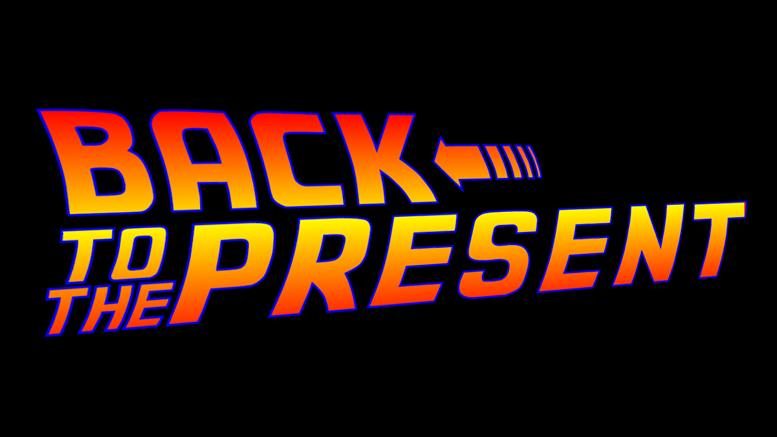Two days ago was Back to the Future day. Social media boomed with people around the world celebrating the 1989 Back to the Future sequel—which saw time travel to October 21, 2015—and clamoring about what the film got right about 2015 (hello, virtual reality eyewear) and what it got wrong (sorry, Cubs).
Having never seen a Back to the Future film, I wasn’t too embroiled in the Doc and Marty hubbub, but all of the discussion about what a sci-fi film did or did not predict in the past spurred me to think about the present.
Twice during this week I found myself talking to a friend and saying, “Let’s just hit the reset button.” By this, I was referring to persistent habits that defined my interactions with those people—ones that should vanish entirely.
For example, one of my friends and I often talk about what we’re hung up on, from troubles with friends to the way the world is. Another friend and I often joke about others who pass us on the street, who are doing nothing more than making funny faces or saying something loudly on their phones.
Talking about topics with more gravitas than sports or video games is certainly not a bad thing; and neither is acknowledging something funny that’s happened. However, over time I’ve come to realize that certain actions grow into habits and can end up overwhelmingly defining a relationship.
For those who I’ve referenced in this piece already, this is not a knock on our friendship. In fact, my concern of these go-to topics of discussion and inevitable actions is an indicator that I care about our friendships a lot.
But like everything, relationships with others need to evolve and, ultimately, change. Many people I know are not change’s biggest fans. I believe new is always better, and without change, we’re left with complacency and stagnation (I’ve said this before in past editorials). When things are going well, or at least not bad, there is often not a need to reassess things.
“If it ain’t broke, don’t fix it.” Well, no—if it can be improved, push it to be better. Of course, not all things are worth the effort to improve; that’s the way it goes sometimes. For those that are worth it though, be critical, reassess things, and take the extra, often awkward effort to make things better.
In the past three days, people have spent so much time dwelling in a fictitious past, and how its anticipated “future” aligns with our present. Reflecting on the past is necessary, but getting stuck there is a mental death sentence.
Ensure your flux capacitor is operational, set your dashboard’s clock to “Now,” fire up your DeLorean, and take a trip to the present, where you can define your past and help influence your future.
